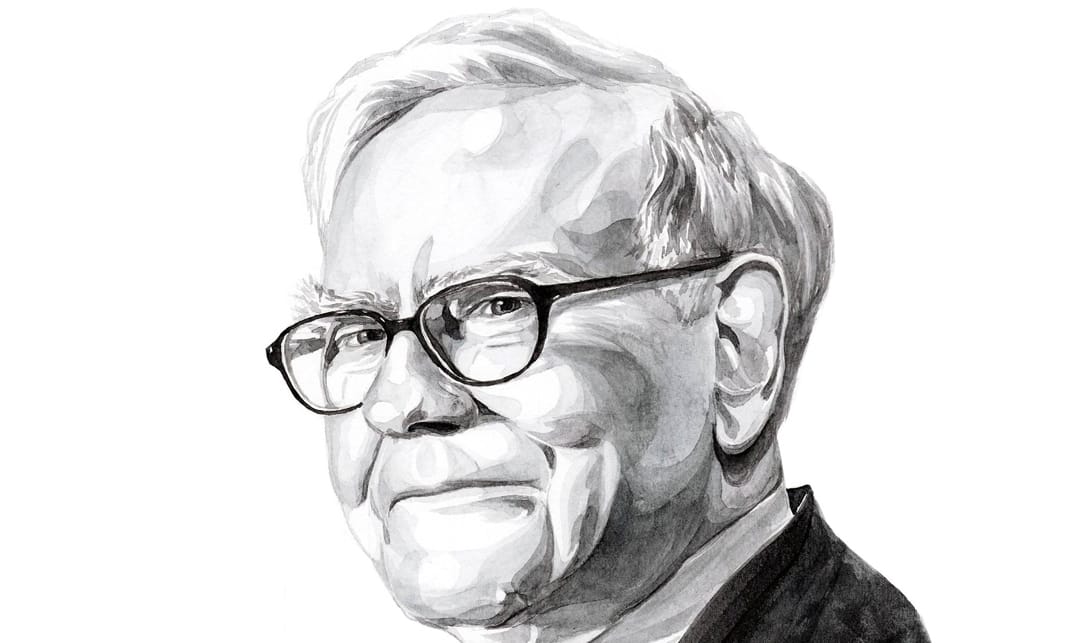- Ben Power
- Posts
- Are the Libs finally getting their shit together? + Buffett’s nasty side + small audiences
Are the Libs finally getting their shit together? + Buffett’s nasty side + small audiences
My gosh, isn’t the Liberal Party a rabble.
According to the latest poll, its primary vote has plummeted to just 24%, with One Nation, at 18%, breathing down its neck.
The party seems ideologically riven and beset by leadership tension; some speculate the Party could split; others hope it will disappear and a ‘true’ conservative party emerges from the ashes.
And yet, through all this doom, and from where I sit, the Liberals and their Coalition partner, the Nationals, might just be giving themselves a slight glimmer of a fighting chance against Labor.
This insight is based on my highly scientific ‘3 brain cells’ analysis.
As I’ve mentioned before, the best summary of marketing, communications and campaign messaging is marketing professor Mark Ritson’s:
“If I have three brain cells in my target customer’s mind, what do I want these brain cells to contain in terms of an association or attribute?”

The Coalition completely bombed the 3 brain cells test in the last election; they had so many messages, often conflicting, that their communication strategy resembled a complex network of neurons, which obviously bamboozled the electorate.
(By contrast, the ALP had 3 clear messages: Steady/not risky, Dutton = Trump, Dutton will cut Medicare, etc.)
But is the Coalition’s confusion starting to clear?
Based on recent machinations, one could argue that the Coalition is slowly, painfully beginning to narrow down its messaging to a few brain cells:
1. Combating higher energy prices by scrapping net zero
2. Cutting immigration to relieve pressure on infrastructure and housing
3. Fiscal discipline to prevent waste and facilitate lower taxes, while maintaining a safety net
The overarching narrative tying this together is cost of living, Australian voters’ top worry.
Now, you could argue against all 3 Coalition brain cells on economic, ethical, factual, political and ideological grounds.
You could argue that Susan Ley is incapable of selling these messages and is likely to be removed sooner rather than later.
And you could point out that, after saying they’ll focus on immigration, the Coalition is already flip-flopping and avoiding a concrete target.
(Or you might just hate the Coalition!)
But, still, from a messaging point of view, there has been progress … and the Coalition is certainly in a better place than they were at the election and even a month ago.
If the Coalition locks them in, they will have 3 messages they can hammer into people’s minds that address real voter concerns and exploit ALP vulnerabilities.
There are a few lessons for us as communicators and thought leaders from the Coalition’s groping towards message clarity:
· Firstly, this has been a process; it hasn’t been easy to thrash out some clear policy positions. Similarly, working out our own positioning and the messaging that flows from it can be difficult, often messy, and an ongoing task.
· The second is that effective messaging requires hard decisions. To get tight messaging, to narrow your messages down to 3 brain cells, you need to abandon things … in the Coalition’s case, net zero (and bipartisan support for mass immigration). “The essence of strategy is choosing what not to do,” says business strategist Michael Porter. That’s not easy. And it hasn’t been easy for the Coalition. But they are making decisions, and their messaging is becoming tighter.
Many of our problems as communicators stem from an unwillingness to go through the process and to make the difficult decision of not being all things to all people.
But when we get that messaging strategy right and tight, communicating clearly becomes much easier, and we give ourselves the best chance of cutting through in a very noisy world.
***
How Warren Buffett’s nasty side bonds his tribe
Warren Buffett was a man who nailed his positioning and messaging.
The great investor, who retires at the end of the year, has penned his last letter to investors. Many lauded Buffett’s final missive as a classic that reflected his “humility”, “generosity”, and “wisdom”.
But I want to highlight two interesting sentences:
“Greatness does not come about through accumulating great amounts of money, great amounts of publicity or great power in government.”
“During my many years, I’ve also watched ill-conceived wealth transfers by political hacks, dynastic choices and, yes, inept or quirky philanthropists.”
What is going on here?
Well, it’s Buffett going on the attack and moralising … as he always does.
While many admire Buffett’s folksy charm, fewer recognise that he’s highly critical. When he speaks and writes, he is constantly framing others as bad and wanting.

Image: CSQ
In his last letter, these bad people are the shallow types who (unlike him) only accumulate money, publicity and power in a vain quest for ‘greatness’; also the “political hacks” and “inept philanthropists.”
In other letters, Buffett has talked about “scoundrels and promoters”; the “feverish activity” of Wall Street; “flagrant perpetrators of misdeeds”; CEOs who engage in the “disgusting” manipulation of earnings …
By contrast, Buffett only works with “wonderful” people, certainly not “jerks”, and his investors are “partners”.
Buffett has had a complicated private life, but when it comes to his rhetoric, outside Buffett’s cozy Berkshire world, money always trumps morality.
Why do I point this out?
Firstly, because Buffett does it so skilfully and subtly – despite his constant carping, no one would come out and call Buffett a critical, moralising arsehole.
Secondly, Buffett’s framing of good versus evil has bonded his people, his tribe, for decades.
Have you ever wondered why Buffettphiles are so zealous?
One of the reasons is that they believe their tribe is more wholesome, more moral than other mere money grubbers, particularly the spivs on Wall Street. They are the good guys.
But I also point this out because, in an age of AI, things like tribalism and identity will become more important.
In a bland, globalised world of vanilla, commoditised, ChatGPT-produced communication, those who skilfully create and bond their tribe will stand out, as Warren Buffett has for so long.
To be tribal is to be human.
Obviously, an ‘us’ and ‘them’ tribalism can become malign; but for the likes of Buffett and his followers it is something quite grand, uniting and motivating.
Based on this, smart communicators will increasingly be more like Buffett.
They will be asking: Who are our people, our tribe? What do we care about? What do we want? Who stands in our way? Who shuns our values? And who are our enemies?
***
The power of small audiences
But how big does that tribe have to be?
Last edition, I extolled the virtues of operating in the mainstream media.
One of the reasons I gave is that it provides access to a bigger audience that helps build awareness of your brand.
I still believe that, obviously.
But that doesn’t mean I don’t also believe in small audiences … particularly if you are in the influence game.
I came across a quote from Voltaire: “Twenty-volume folios will never make a revolution; it is the little pocket pamphlets costing 30 sous that are dangerous.”
It reminded me of the power of small.
Something that’s always surprised me is that many of the most powerful, brilliant and influential books in the history of mankind had – particularly when first published – a readership that was tiny.
· The initial print run of Descartes’ Discourse on Method, a foundational text of modern science, is estimated to be between 500 and 1000.
· Goethe’s Faust had an initial commercial print of 4,000 copies.
· The Great Gatsby sold fewer than 25,000 copies while F Scott Fitzgerald was alive.
· Karl Marx’s Das Kapital took five years to sell its first print run of 1,000 copies.
· Charles Darwin’s On the Origin of Species first run of 1250 copies was sold out on the first day, prompting a subsequent print run of … just 3000 copies.
What these books lacked in quantity of audience, they made up for in the quality of audience.
They circulated amongst, and were read by, the influential and the powerful.
So, if you are looking to change the world, and you have a small audience, don’t despair, because you could be talking to the right audience.
And, therefore, I would argue for what Mark Ritson might call ‘bothism’: playing a bigger game in the media and cultivating your smaller audiences on owned channels such as newsletters and social media.
